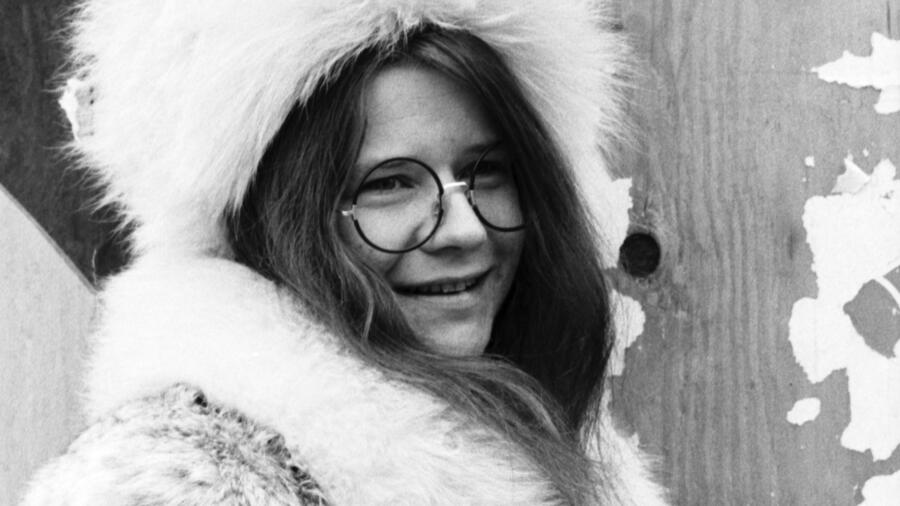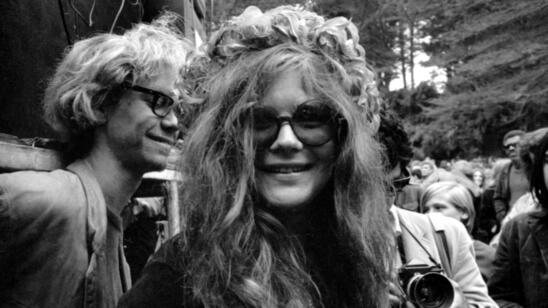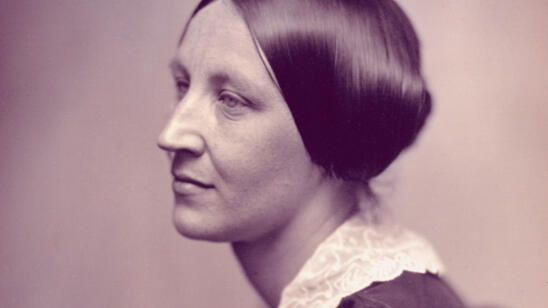On January 19 1943, Janis Joplin was born in Port Arthur, TX. With her peacock-like psychedelic style, assaulting blues vocals and earth-shaking swagger, Joplin has been called “the greatest white urban blues and soul singer of her generation.” She catapulted to superstardom during the 1960s counterculture movement and changed rock music forever.
Joplin was bullied in high school for the same unconventional looks that would eventually propel her to rock star status. After graduating from high school, Joplin had two brief stints at nearby colleges before moving to Los Angeles in 1961. However, she ended up returning to Texas in 1962 to study art at the University of Texas at Austin. In Austin, Joplin began singing at open mic folksings on campus and at a local bar. Joplin, who had been singing in her church choir since childhood, impressed everyone with her powerful pipes. However, unlike her folk-singing contemporaries like Joan Baez and Judy Collins who were known for their gentle sound, Joplin was anything but gentle.
In 1963, Joplin ditched college to become a part of the San Francisco music world. Although she managed to land some gigs, she had trouble breaking into the scene. Then after trying to make it in the New York City club circuit, she ultimately returned to her Texas hometown in 1965. Joplin attempted to clean up her act and become a straight-laced secretary-type, but when she was invited by her friend to come back to San Francisco to audition for a new psychedelic rock band Big Brother and the Holding Company, she jumped at the chance and landed the gig.
In 1967, the band performed a now-legendary set at the Monterey International Pop Festival, which led to a record deal. Their 1968 debut album, “Cheap Thrills,” reached the No. 1 spot on the Billboard 200 chart only eight weeks after its release. TIME magazine described Joplin as “probably the most powerful singer to emerge from the white rock movement.”
Shortly after Big Brother and the Holding Company’s successful first album, Joplin left the band to embark on a solo career. Now backed by the Kozmic Blues Band, Joplin performed at the Woodstock Music and Art Fair in Bethel, NY on August 16, 1969. Joplin sauntered onto the stage for her delayed, but historic performance. Her setlist at Woodstock included two of her iconic hits, “Try (Just A Little Bit Harder)” and “Piece of My Heart.” Most of Joplin’s songs were covers, but the paradox of power and pain in her music spoke to a generation coming of age during both the free love movement and the violent Vietnam War quagmire. Attended by over a half a million people, Woodstock was a defining moment in both music and counterculture history.
In September 1969, Joplin released her first solo album, “I Got Dem Ol’ Kozmic Blues Again Mama!,” to mixed reviews. In that time, Joplin felt tremendous pressure to be accepted by the male-dominated rock industry. As she recorded music for a new album, she struggled with alcohol and drugs.
In the end, despite her power as a singer, Joplin was unable to kick her heroin habit. The star died from an accidental overdose on October 4, 1970, at age 27. A year after Joplin’s untimely death, her second album, “Pearl,” was released. The posthumous album quickly rose up the charts, propelled by the hit single, “Me and Bobby McGee,” penned by her former lover, Kris Kristofferson. Two other hits from the album, “Move Over” and “Mercedes Benz,” were written by Joplin herself.
Recognizing her influence on rock music, Joplin was inducted into the Rock and Roll Hall of Fame in 1995. In 2005, she was honored with a Recording Academy Lifetime Achievement Award at the Grammy Awards. Though her groundbreaking rock career was short-lived, Joplin forged a path for other female performers like Madonna and Lady Gaga, whose careers are defined by taking the stage on their own terms.


